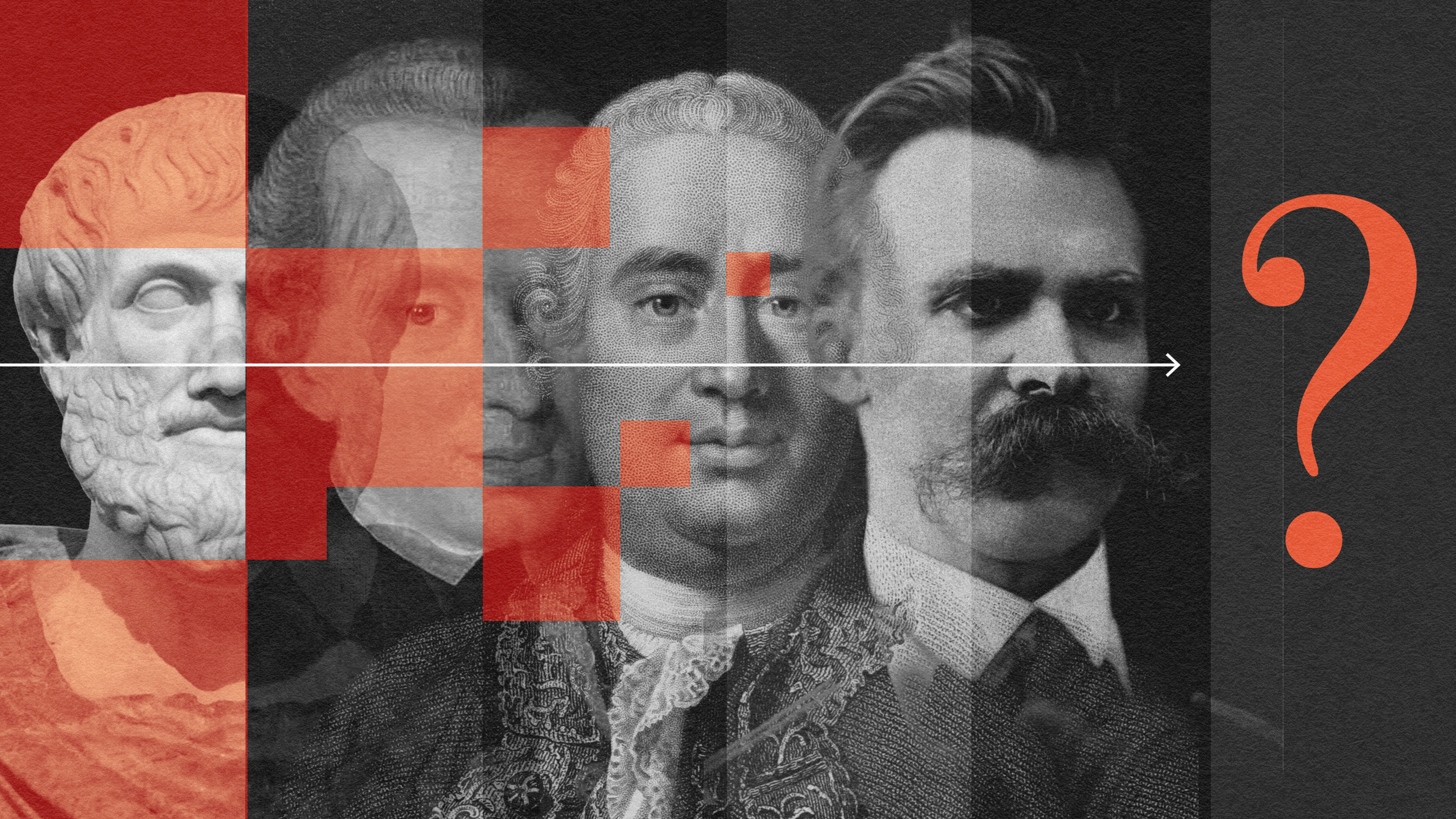Why Men Cheat, with Rabbi Shmuley Boteach

It’s not for sex; it’s for affirmation.
Men cheat, by and large, because they feel like failures. They stray because they seek an outside arbiter. They need someone not their wife or partner to proclaim them worthy.
This was the essence of Rabbi Shmuley Boteach’s 2008 book The Broken American Male: And How to Fix Him. During his Big Think interview, the renowned author expounded on the topic of male infidelity:
Boteach, who has written numerous books on passion and intimacy, offers a compelling metaphor to explain a man's support structure, comparing the construction of the male psyche with the architecture of European cathedrals. As he explains, there are two ways to keep those buildings standing:
"One is with giant support structures in the middle and you see that often. The other is with something called a flying buttress. It’s where you want to keep the space hollow and fit in as many people as possible so you support the structure with these buttresses that hold the structure up from the outside. Well, a man can either have his wife who’s his support network, who is one of the great pillars of his sense of self, his self-esteem. And she helps him to hold up the entire structure of who he is. And that’s healthy, a soul mate. Or you can have the flying buttress. It’s where you’re hollow and empty on the inside. You feel like you don’t have any real self-worth. You feel insignificant. You feel anonymous. You feel that some of your life’s achievements does not amount to much. So you get someone from the outside to help raise the structure. That’s the principle reason why men have affairs."
So why can't "flying buttress" men just turn to their wives for support? Boteach explains that when a man feels like a loser, he assumes that anyone who would marry a loser must be an even bigger loser than he is. The infelicitous male sees an unattached stranger as a more worthy judge of his value. His psychological and spiritual weaknesses also has an adverse effect on his wife:
"A lot of husbands do that to their wives. They take beautiful women, smart, accomplished professional women, loving women and as soon as they marry them with their broken sense of self, they transfer the sense of nothingness onto their wives."
Fascinatingly, Boteach explains that this idea applies also to many of the world's most powerful and successful people. Tiger Woods was better than anyone else in the world at what he did yet still felt like he needed some sort of outside confirmation of his value. The same goes for Kobe Bryant. Heck, Bill Clinton's status as the most powerful man on Earth couldn't assuage his insecurities and temper his infelicitous pursuits.
Boteach acknowledges that the rates of female infidelity are skyrocketing as well. Still, he perceives a key difference in the reasons why, by and large, the different sexes stray.
"A man cheats for the ego boost and for affirmation. Women almost always cheat out of neglect. You know, the studies really show that wives whose sexual, emotional and romantic needs are addressed in marriage don’t really cheat."
As Boteach's specialty is the subject of lust vs. love, he focuses more on the reasons why men cheat on their wives. He tells how painful it can be to watch a dejected woman receive the information that her husband has been unfaithful, that she's been discarded:
"It’s amazing that the husbands, to comfort their wives, will say to me on that couch -- will say to their wives on that couch -- 'but I didn’t love her. I love you.' So what are they really saying? I didn’t love her, I lusted after her. I loved you but I lusted after her. Now if you ever put love and lust in a boxing ring together, lust is gonna crush love. And that’s what they’re really saying."
This is why Boteach preaches that men and women should never downplay sexual desire in their relationships. The key to building and maintaining healthy marriages, he explains, is not to focus on love, but rather embrace mutual lust:
"Lust is where you want that person and that’s why you’re there. And that has to be the primary reason that we go into marriage and that we stay in marriage. And I maintain passionately that the passion need not be lost, that this idea that there’s a transition in marriage from lust to love, that when you’re single you can’t keep your hands off of each other. But it slowly migrates into this partnership, such a cold commercial expression. That it slowly migrates into this partnership. I – that’s balderdash. It’s a defeatist approach to marriage."
Rabbi Schmuley Boteach's new book Kosher Lust: Love is Not the Answer is now available on Amazon.





